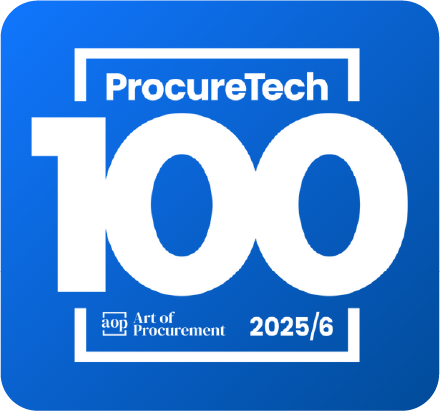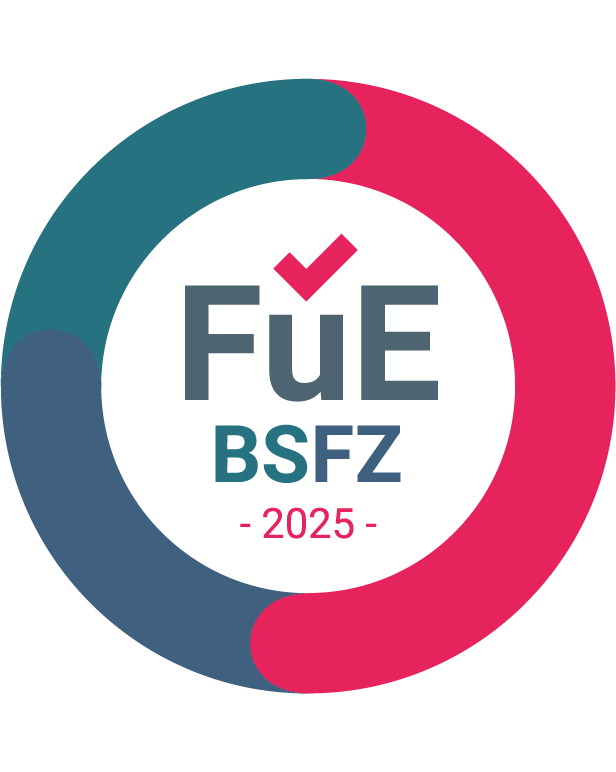Nicolas Neubauer and Daniel Demuth are the founders of ivoflow. The two first met about ten years ago while working in strategic procurement at their previous employer in the automotive supplier industry. Frustrated by the complex requirements of procurement on the one hand and the lack of a helpful digital solution on the other, they decided to take matters into their own hands – and founded ivoflow. Together with a team of software developers and in a lively exchange with other purchasing experts, the first prototype of the software was created within a few months. Today, ivoflow is used by well-known industrial companies, including Jaguar Land Rover, Dräxlmaier, BOMAG and TROX. In this interview, Daniel and Nick talk about the challenges and successes of the first few years as well as feedback from the market.
What was the biggest challenge during your time as a buyer? Daniel: For a data-driven person like me, it was incredibly difficult to keep track of all the data. Following what was happening on the market, being informed about raw material prices, exchange rates and risks such as insolvencies – when working in procurement youhave to process vast amounts of data without losing control.
What was the biggest challenge in the founding phase of ivoflow? Nick: Being credible and gaining the trust of the market. Some companies are often skeptical of young start-ups. With the first orders and references, we gradually aroused the interest of the market.
How has ivoflow been received by the market? Nick: We are receiving very positive feedback from the market across the board. Despite the current economic situation, companies are investing in digital solutions like ivoflow. Our customers particularly appreciate our willingness to co-create. We do not offer an off-the-shelf product but customize the software according to individual customer requirements. The satisfaction of our customers is also reflected in the fact that they often act as a kind of “brand ambassador” without being asked and make recommendations to other companies. This is a different kind of appreciation.
Daniel: The great thing is that we have developed a tool that offers our customers unique added value that has never existed before. Innovative, flexible, customer-oriented – we often hear this feedback and are naturally very pleased about it. Customers are also impressed by the fact that we come from the industry and are passionate about procurement. We are experts in the field and don't just want to sell software.
“We developed a software from procurement for procurement.” As you say, you are a buyer by trade. To what extent do you still benefit from this? Nick: Our professional background was an extreme advantage, especially at the beginning. Without our industry knowledge and credibility, we would have had a much harder time. The companies we talk to are happy that we not only know 0 and 1, but also know the ropes of working in procurement. We notice this in every customer meeting when we show how we developed a software from procurement for procurement.
What reservations do you encounter during such discussions with customers? Nick: It is a potpourri of reservations. The current economic situation, frozen budgets, internal approval processes – all of this comes up. Companies often take on the digital transformation themselves, set up dedicated IT and digitization teams and develop a solution in-house. We are not advocates of this and advise our customers against it. Firstly, because an in-house solution can quickly become a bottleneck. There is usually only one or a few employees who are appointed as key users. If these employees leave, the company has a problem. On the other hand, these internal solutions only focus on the very individual problem of the respective company and are not in tune with the times. We, on the other hand, are under pressure from the market to react to all trends and developments to remain competitive.
“Software must solve the problems of tomorrow – not just those of today.” How do you counter these reservations? Nick: Educational work is the keyword. We don't sugarcoat anything, but provide the arguments mentioned above. “You may solve today's problems, but you won't solve tomorrows.” Our tool is driven by the industry, with all its pain points and challenges, whose solutions will have to be incorporated into our software sooner or later. Our customers usually understand this quite quickly.
Keyword: ROI. After all, software must pay for itself. What does this calculation look like for ivoflow customers? Nick: We are not a fan of so-called soft savings, such as resources saved in reporting or increased efficiency. Instead, we show our customers hard savings. If a company pays €1 for a purchased part today and only 70 cents tomorrow thanks to our software, the ROI is self-explanatory.
How often do customers request customized solutions? How do you deal with this? Nick: We always stay very close to the market, listen to our customers' challenges, and ensure that we incorporate the relevant solutions and functions into the core product - while still being able to scale.
Daniel: As we serve a specific niche, our software generally meets most customer requirements and requires little customization. Nevertheless, we are happy to implement configurations. After all, we aim to provide our customers with a tailor-made solution.
How do you support your customers in sustainable procurement? Daniel: We have developed a CO2 tool that follows the same logic as our other solutions: It calculates CO2 emissions according to the bottom-up principle. This allows us to map CO2 emissions in detail at part number, supplier and plant level and aggregate them accordingly. Like the spend analytics functions, our tool also provides recommendations on how to optimize the CO2 footprint.
How noticeable was/is the shortage of skilled workers for you? How did you manage to set up a team and be an attractive employer? Daniel: This is not an easy issue for us either, but it can be solved. We are looking for characters who want to play an active role in shaping our company and for whom their own impact on the product and the company is important. We also deal openly with ivoflow’s philosophy when recruiting new talents. At the same time, we avoid unnecessary “politics” and value cooperation at eye level as well as an honest exchange.
Where will the ivoflow journey take us in the next few years? Nick: Despite tense markets, we are very positive about the future. Not least because of our current order situation, with which we are very satisfied. Our team keeps on growing and we have many new ideas in the pipeline. Now it is important to retain customers in the long term and keep them happy, to build up a good team of employees and experts and to observe and address market trends.











